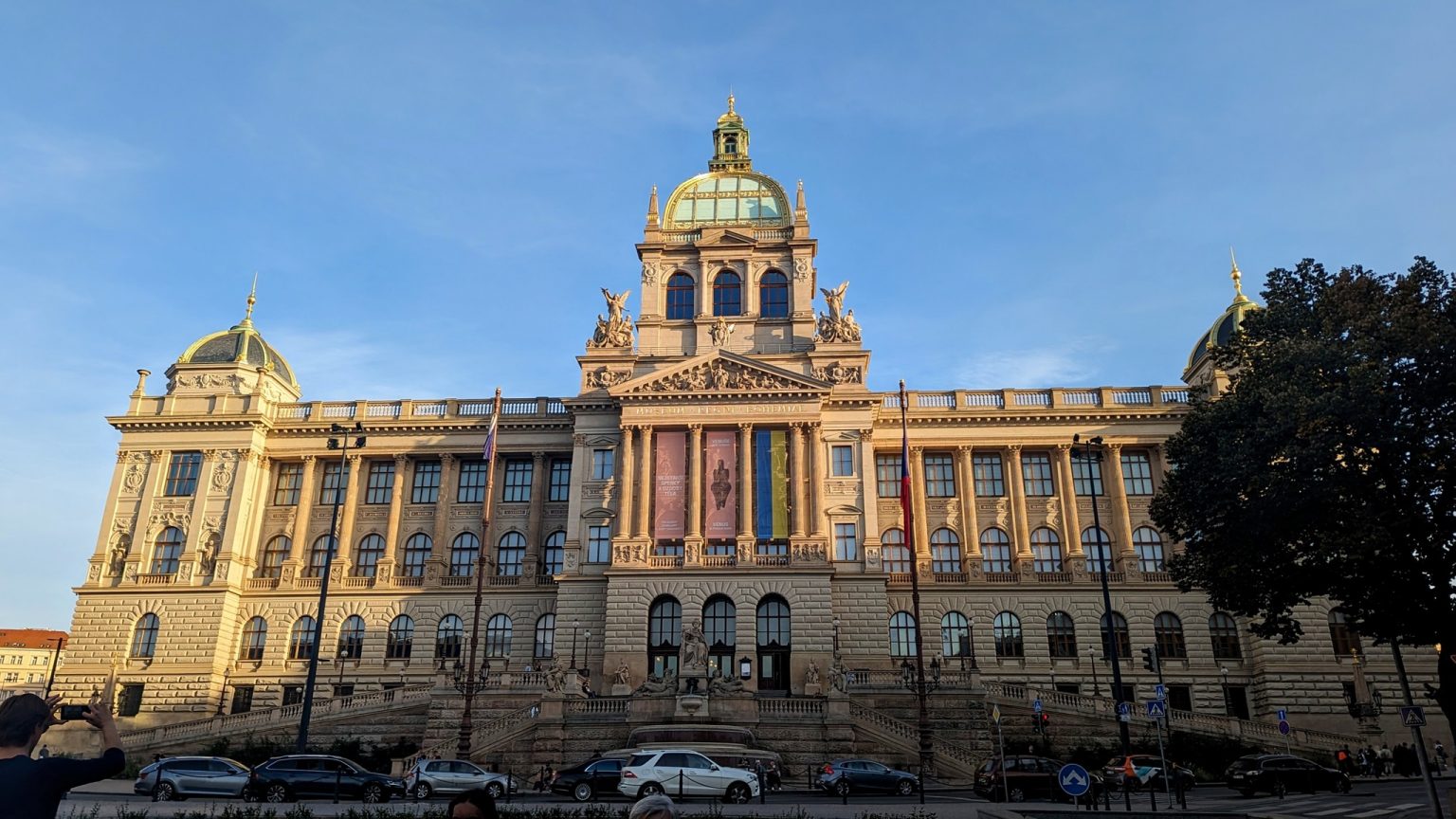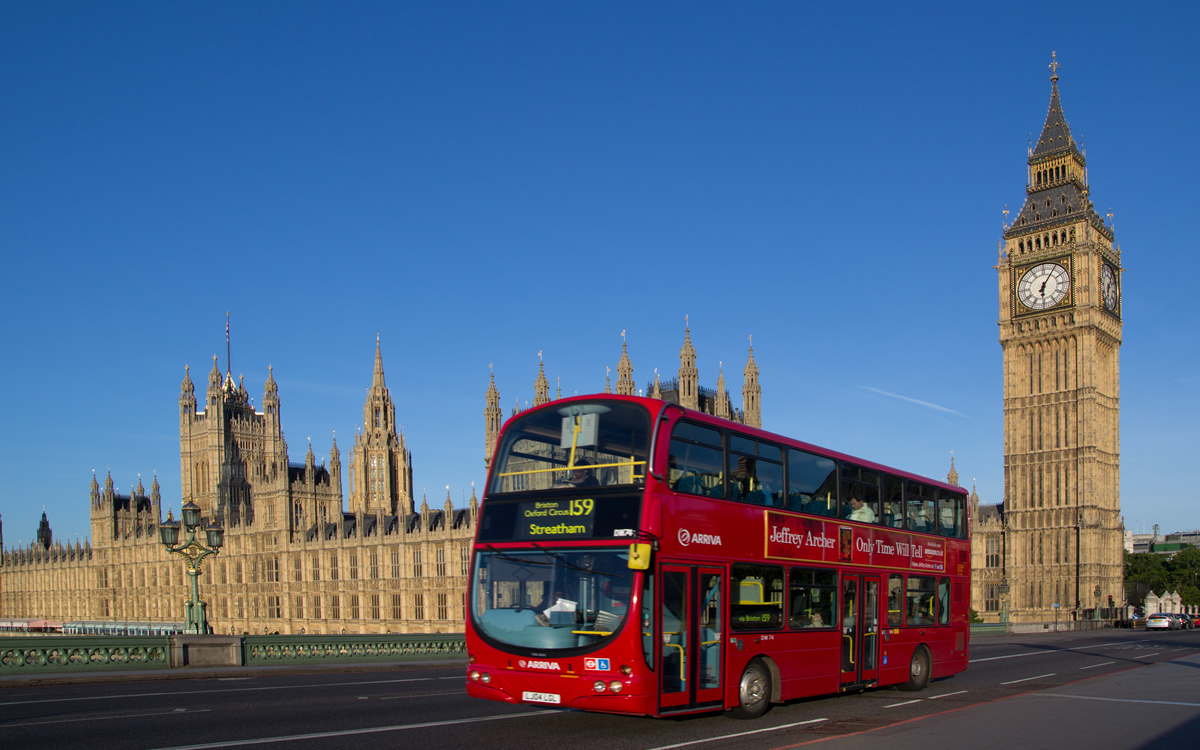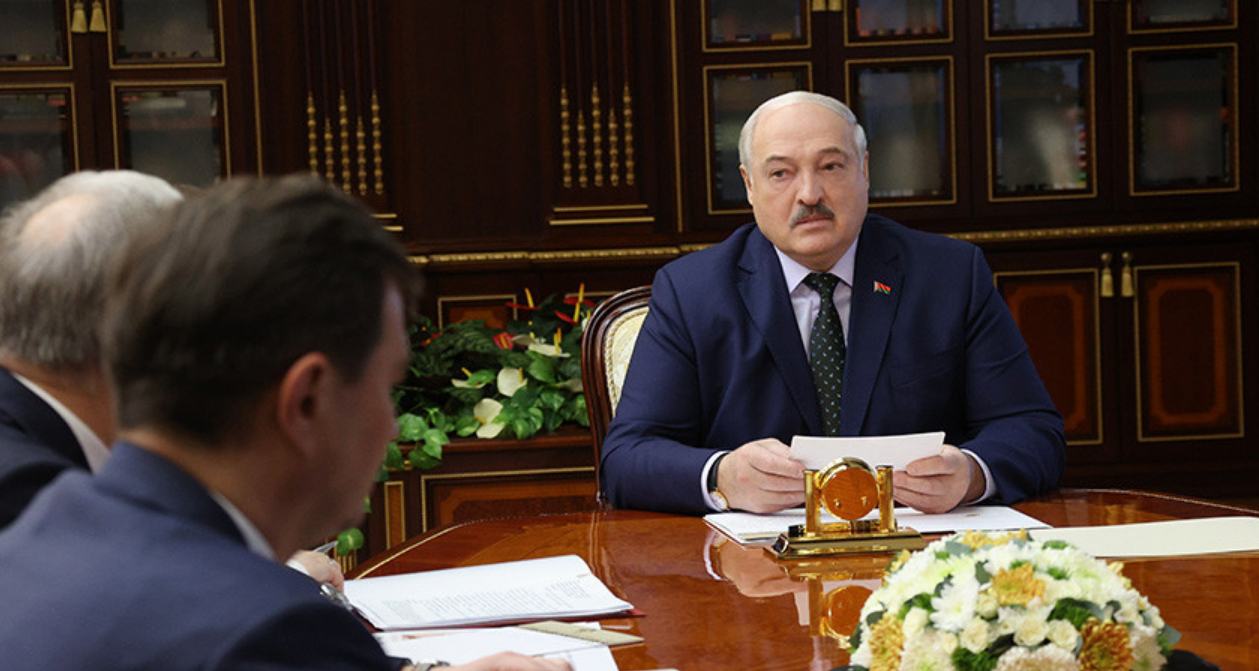World
Out in the World: LGBTQ news from Europe and Asia
German lawmakers on Friday passed a transgender rights bill

MONACO

Monaco’s top court struck down two lower court rulings that would have required the tiny Mediterranean principality to recognize foreign same-sex marriages, in a ruling that has not yet been published.
The case centered around a binational Monegasque-American same-sex couple who married in Grand Rapids, Mich., in August 2019 while residents in that state. When they returned to Monaco the following year, the government refused to record them in the state register of marriages.
“Although valid, this union cannot be transcribed in the marriage register in view of its manifest contrariety with Monegasque public order characterized by the constitutional principle according to which the Catholic, Apostolic and Roman religion is the state religion,” stated a letter from the Public Prosecutor’s Office in a letter to the Civil Registrar on the matter.
The letter goes on to invite the couple to instead form a cohabitation contract, which has been available to same-sex couples in Monaco as a form of civil union since 2020.
The couple rejected that offer and appealed to the attorney general, who again refused to recognize the marriage, so the couple took their case to court.
In March 2022, the court of first instance ruled in the couple’s favor, citing the presumption in international private law that marriages validly concluded in one country are generally recognized in any country. The court also found that the same-sex marriages are not contrary to the public order simply because Catholicism is the state religion, and that the cohabitation agreements are inadequate to protect the family rights of married couples.
The prosecutor general quickly appealed the decision, but the Court of Appeal once again ruled in September 2023 in the couple’s favor. The court also found that the state’s offer that the couple could protect their rights through a cohabitation agreement to be impractical, as the cohabitation law specifically says that agreements are unavailable to anyone who is already married.
Still, the government appealed the decision to the Court of Revision, Monaco’s highest court dealing with administrative matters. That court finally ruled that the government is not obliged to record same-sex marriages, striking down the previous two rulings.
LGBTQ rights have long been a contentious issue in the tiny city-state of approximately 39,000. While there are no local LGBTQ advocacy organizations, the state has been pushed to enhance the legal rights of its queer citizens by its larger European neighbors.
Monaco was one of the last states in Western Europe to offer legal recognition to same-sex couples through the 2020 Cohabitation Agreement Bill, which came about largely because Monaco recognized it was in violation of the European Convention on Human Rights, which courts have interpreted as requiring states to give equal recognition to same-sex couples.
Still, the cohabitation agreement is explicitly unequal to marriage. Couples in cohabitation agreements are not considered families and can even include siblings or other relatives. They don’t enjoy equal treatment in terms of taxation or inheritance, can’t choose a common surname and can’t adopt and cohabitation with a Monegasque citizen doesn’t entitle a partner to residency rights the way marriage does.
Monaco also lacks any anti-discrimination protections for LGBTQ people, and transgender people are not allowed to change their legal gender.
ITALY

During a press briefing Friday at the conference “For a Young Europe: Demographic Transition, Environment, Future,” Italian Prime Minister Giorgia Meloni took aim at the practice of surrogacy which is already illegal in Italy saying the practice is “inhuman.”
The prime minister’s party recently introduced legislation in the Italian Parliament that would further criminalize the act by hiking fines from €600,000 to €1 million ($640,290 to $1,067,150) and increasing jail terms from three months up to two years.
“I continue to believe that surrogacy is an inhuman practice,” Meloni said. “I support the bill that makes it a universal crime,” she added.
Last week Pope Francis issued a papal document, the 20-page Dignitas infinita, which stated that surrogacy “violates” both the dignity of the child and the woman, who “becomes a mere means subservient to the arbitrary gain or desire of others.” The document also declared gender-affirming surgery to be a grave violation of human dignity.
CNN reported that the move to criminalize surrogacy is largely seen as a move against the LGBTQ community. Italy was the last European country to legalize same sex unions, which it did in 2016 but does not allow gay couples to be “married,” in line with the Catholic Church.
Under Meloni’s government, birth certificates were changed to list “mother” and “father” rather than “parent 1” and “parent 2.” In 2023 some communities where her Brothers of Italy leads the government, names of lesbian mothers were removed from birth certificates.
CZECH REPUBLIC

The Czech Senate began consideration of bill that would enhance the rights of people in same-sex civil partnerships this week, continuing a tense legislative process that has seen pro-and anti-LGBTQ groups lobbying lawmakers to make changes to the bill.
The civil partnership bill passed through the lower house of parliament in February. It was a compromise after a bill that would have allowed same-sex marriage couldn’t get enough support to pass.
The bill makes registered partnerships, which have been legal in the Czech Republic since 2005, equivalent to marriage in all matters except adoption. Same-sex couples will have the right to stepchild adoption only — couples will not be allowed to jointly adopt.
Some senators have presented amendments to the bill that would allow same-sex marriage and full joint adoption, but some legislators think this strategy is risky — any amendments would send the bill back to the lower house, where it’s not clear they could pass.
On the other hand, some senators are pushing amendments that would water down the bill further, by eliminating adoption entirely.
Leading up to the senate debate, LGBTQ advocates were sanguine about the prospects of getting everything they want.
“Together with the majority of Czech society, we sent a clear message to our legislators: Only the institute of equal marriage will ensure equal legal protection, social security and family stability for all couples and families with children,” wrote Lucia Zachariášová a lawyer who works with the LGBTQ advocacy organization Jsme Fér in an open letter to legislators this week.
“However, the partnership can at this moment fulfill a promise repeated so much that if it is not a question of marriage, there will be no problem to accept such a solution. It is important to repeat again: it will help especially families with children to have a little more restful sleep,” she writes.
So far, three senate committees have examined the bill, recommending either that the Senate pass the bill as is or simply not debate it. In the Czech system, if the Senate doesn’t address a bill passed by the House, it is sent to the president to be signed into law anyway. The president is expected to sign the bill, as he campaigned for full marriage equality.
One more committee is set to examine the bill next week before it’s scheduled for debate on the senate floor April 17.
If the Senate rejects a bill, or passes it with an amendment, it returns to the lower house, where deputies can either accept the amendment or reaffirm the bill with the support of an absolute majority or 101 votes. The bill originally passed through the lower Chamber of Deputies with 118 votes in favor.
While Czech LGBTQ people are disappointed by the lack of progress on marriage equality, they’re also anxious to get the bill passed, as it would still offer a great improvement to the legal rights of many same-sex couples and their children.
“The House is not expected to improve the amendment. On the contrary, there is a fear that the situation could worsen or that everything would fall under the table,” Jsme Fér said of the progress on the bill in a post on X. “[Senators] fear a debate that might not be dignified for hundreds of thousands of LGBT people, and after six years of debates in the House of Representatives, everything important has already been said.”
GERMANY

The German Parliament on Friday voted 374-251 to pass a new law allowing trans people to change their legal gender by a simple administrative procedure, replacing outdated requirements from the 1980s for declarations of support from doctors and other invasive procedures.
The new law also imposes hefty fines of up to €10,000 ($10,658.85) on anyone intentionally disclosing a trans person’s previous name or gender for a harmful purpose. The law allows exceptions in cases where disclosure would be a legal requirement, for example in a court proceeding or a police investigation.
Under the new law, trans people may change their legal gender to male, female or “diverse” — a third-gender option already available under German law. Applicants can also request that no gender details be recorded at all. Trans people will simply file a request, and then appear in person at a registry office three months later to make the change official.
The new law is open to people over 18. Those between 14 and 17 will need a parent’s permission to file the application, while those under 14 will require parents to file the application on their behalf.
Applicants are limited to one name and gender change within 12 months. The law also allows the government to suspend applications to change legal gender from male to female or diverse made up to two months before a national emergency is declared.
The law continues to allow operators of women-only spaces, such as gyms or changing rooms, to decide on their own who is allowed to access them.
German Chancellor Olaf Scholz said the law was about showing respect to gender-diverse people.
“We show respect to trans, intersex and non-binary people — without taking anything away from others. This is how we continue to drive the modernization of our country. This includes recognizing realities of life and making them possible by law,” Scholz wrote in a statement on X.
The law was part of the governing agreement made by the current governing coalition. The upper house of parliament does not need to vote on the bill. The law will come into effect in November.
Under the 1980 Transsexuals Law, trans people were required to get two expert reports from doctors attesting that the applicant will not be likely to want to return to their previous legal gender. These reports often required trans people to undergo invasive psychological and physical examinations and would add months of delay and average additional costs of up to €2000 (approximately $2,130.)
The Constitutional Court struck down a requirement that trans people have sex reassignment surgery and be sterilized in 2011. The same court required the government to create a non-binary option for intersex people in 2017, which the government did a year later.
Germany’s coalition government, in place since September 2021, has promised to introduce several pro-LGBTQ policies, including creating a hate crime law, amending the Basic Law to ban discrimination based on sexual identity, and automatic parenthood recognition for same-sex parents.
UNITED KINGDOM

A government-commissioned review of gender care services for trans youth in England and Wales has sparked an outcry from trans activists who say that the review discounted decades of research showing the value of gender care treatment to reach a conclusion that care should be restricted for youth.
The “Cass Review” was commissioned by the National Health Service England in 2020 to examine gender care services for young people following reports showing a large increase in the number of youth accessing care at the now-closed Gender Identity Development Service. The Review was led by Dr. Hilary Cass, a former president of the Royal College of Pediatrics and Child Health.
The disputed report concluded that there isn’t good scientific evidence to support most forms of gender care, including puberty blockers, hormone therapy or social transition.
“While a considerable amount of research has been published in this field, systematic evidence reviews demonstrated the poor quality of the published studies, meaning there is not a reliable evidence base upon which to make clinical decisions, or for children and their families to make informed choices,” reads an excerpt of the report’s executive summary.
But trans advocates criticized that conclusion, pointing out that Cass held existing studies of gender care to an impossible standard. Her report discounted any study that wasn’t based on double-blind trials, which they say would not be possible or ethical.
“The Cass Review dismisses a very large number of studies and omits studies from the past two years. Hence, it neglects a vast amount of evidence on the benefits of gender affirming medical treatment for trans youth in its analysis,” writes Dr. Hane Maung of the trans healthcare service GenderGP.
“For many medical interventions, including gender affirming medical treatment for trans youth, randomized controlled trials are unfeasible and unethical, because the consequences of not intervening would be very apparent to the participants and also would be unacceptably harmful,” he says.
The Cass Review urges caution in treatment for trans youth, including a new recommendation that medical consultations be undertaken before youth are allowed to socially transition — a major expansion of the medicalization of gender identity. Some trans activists also noticed that the review suggests increased surveillance of trans care through age 25, suspecting this implies further restricting care into adulthood.
The day the Cass Review was published, NHS England announced it would be launching a review of adult gender care, alleging whistleblower complaints.
The Guardian reports that Cass also advised the government to be cautious with the proposed ban on conversion therapy, which the government has put under review, but which is unlikely to be introduced before an election is held. Cass reportedly urged the minister responsible to ensure that doctors providing gender care are insulated from accusations of conversion practices, claiming that doctors are already afraid to take a more cautious approach to providing treatment.
The Cass Review has already made waves across the UK, with transphobic author JK Rowling claiming that it vindicates her years-long anti-trans campaigning, and claiming she would “never forgive” “Harry Potter” stars Daniel Radcliffe and Emma Watson for supporting trans rights.
Prime Minister Rishi Sunak endorsed the report’s findings.
“We care above all about the wellbeing of children and it’s clear that these things are not neutral acts, whether that’s social transitioning, any kind of medical intervention, we simply do not know the long-term effects of these things,” he says. “And that’s why anyone involved in considering these issues, of course, has to treat people with sensitivity and compassion, but also have to be extremely cautious when it comes to taking any action.”
The opposition Labour Party, which is expected to win national elections later this year, has already said it would implement all of the Cass Review recommendations when in government. Labour’s shadow minister for health told the Sun that he no longer stood by the statement that “trans women are women” in the wake of the review.
The NHS Scotland and NHS Wales, which hold devolved responsibility for care in those countries, said they were reviewing Cass’ findings.
BELARUS

The government of Belarus issued a decree this week declaring that depictions of LGBTQ people may be considered illegal pornography, whether or not sexual acts are depicted.
The Culture Ministry amended a decree on “erotic materials” to include homosexuality or transgender as “non-traditional sexual relationship or behavior,” equivalent to necrophilia, pedophilia, and voyeurism.
That may mean that depictions of LGBTQ people are considered pornography. Under Belarussian law, production, distribution and public displays of pornography are punishable with up to 4 years in prison, or up to 13 years for child pornography.
Using these new definitions, an innocuous picture of a same-sex couple with their child, or a picture of a trans child, or a picture of two same-sex teens on a date, could all be considered child pornography.
According to Human Rights Watch, it is not yet clear how the government plans to interpret and enforce the new decree.
Belarus is one of the least free countries in Europe according to the human rights advocacy group Freedom House. Often considered a client state of neighboring Russia, Belarus tends to follow its larger neighbor culturally and politically. The country has bene governed by President Alexander Lukashenko since 1994, with political dissidents routinely jailed and media heavily censored.
LGBTQ Belarusians lack any protections from discrimination, and anti-LGBTQ violence is common. Officials have floated introducing a Russia-style “gay propaganda” law over the years, but one has never been formally enacted.
El Salvador
Gay Venezuelan makeup artist remains in El Salvador mega prison
Former police officer said Andry Hernández Romero was gang member because of tattoos

A new investigation points to a discredited, former police officer who played a “key role” in the wrongful deportation of Andry Hernández Romero, a gay asylum seeker and makeup artist who was sent to a maximum security mega prison in El Salvador under Trump’s Alien Enemies Act.
USA Today found in a recent investigation that the former Milwaukee police officer who filed the report about Hernández, citing his tattoos as the reason for the gang affiliation, has a long history of credibility and disciplinary issues in his former police officer position.
The private prison employee who previously worked as a police officer until he was fired for driving into a house while intoxicated — among other alcohol-related incidents — “helped seal the fate” of Hernández.
The investigation by USA Today found that the former police officer accused Hernández of being a part of the Tren de Aragua gang because of his two crown tattoos with the words “mom,” and “dad,” which are now being identified as Venezuelan gang-related symbols.
Since then, his story has made headlines across the nation because Hernández has no criminal record and is legally seeking asylum in the U.S. due to credible threats of violence against him in Venezuela because of LGBTQ persecution.
He was targeted shortly after Trump invoked the Alien Enemies Act of 1798, which is a proclamation for all law enforcement officials to “apprehend, restrain, secure, and remove every Alien Enemy described in section 1 of [the] proclamation.”
Charles Cross, Jr., the former police officer, signed the report which wrongfully identified Hernández as a gang member. Cross was fired in 2012 after many incidents relating to his credibility and how it was affecting the credibility of the department to testify in court.
He had already been under investigation previously for claiming overtime pay that he never earned. In 2007, he had also faced criminal charges for damage to property, according to court records.
In March, the Washington Blade spoke with the Immigrant Defenders Law Center Litigation and Advocacy Director Alvaro M. Huerta regarding the case and stated that “officials with U.S. Immigration and Customs Enforcement and U.S. Customs and Border Protection alleged his organization’s client was a member of Tren de Aragua, a Venezuela-based gang, because of his tattoos and no other information.”
Hernández came to the U.S. last year in search of asylum and now makes up one of 238 Venezuelan immigrants who were deported from the U.S. to El Salvador, Honduras and Venezuela. Many of those being deported are being sent to the Center for Terrorism Confinement, a maximum-security mega prison in El Salvador, which has been accused of human rights violations.
According to the investigation, the Department of Homeland Security “wouldn’t offer further details on the case, or the process in general, but reiterated that the department uses more than just tattoos to determine gang allegiance.”
His story is now being looked at as a cautionary tale of the lack of due process of law the U.S. government is taking, as the Department of Homeland Security and Immigration and Customs Enforcement ramp up deportations across the nation.
Organizations like the Human Rights Campaign are now calling for Secretary of State Marco Rubio and Secretary of Homeland Security Kristi Noem to cease wrongful deportations and return Hernández home. The petition also urges the U.S. government to afford all Americans, forging nationals and asylum seekers residing in the U.S., due process of law as required by the Constitution.
Argentina
Gay, nonbinary parent fights for family in Argentina’s courts
Leonardo Hatanaka alleges they were fired after requesting paternity leave

An unprecedented case could set an important legal precedent for the rights of labor rights for LGBTQ families in Latin America.
Leonardo Hatanaka, a Brazilian pharmaceutical professional, expects an imminent ruling from the Superior Court of Justice in the Autonomous City of Buenos Aires in a case that alleges discriminatory dismissal based on sexual orientation, gender identity, and xenophobia after their son Matteo’s birth in Argentina via “solidarity gestation.” Human rights organizations and international agencies have followed the case closely.
Genzyme de Argentina S.A. and Sanofi in 2023 fired Hatanaka weeks after they notified them of their son’s paternity and requested 180-day parental leave.
“Matteo’s birth was the realization of a dream and the right to form a family with love, dignity and equality, even if that means having to fight every day for our family to be recognized as such,” Hatanaka told the Washington Blade in an exclusive interview.
The National Institute Against Discrimination, Xenophobia and Racism, a government agency known by the acronym INADI that President Javier Milei’s administration has shut down, in November 2023 said Hatanka’s termination was motivated by discrimination based on sexual orientation and gender identity.
(Milei took office in December 2023.)
The General Directorate of Coexistence in Diversity in Buenos Aires’s government in 2024 said institutional xenophobia motivated the firing.
“I am a gay man, foreign, nonbinary, and I had requested to exercise my right to parental leave,” Hatanaka explained. “The company denied access to a basic right to care, which it does provide in other countries, and did not provide any medical coverage for our son, despite his legal registration with both parents’ names.”
Sanofi did not acknowledge responsibility, offer apologies or any kind of reparations, despite the two rulings.
“It was devastating. I was caring for a newborn, at a moment of enormous vulnerability, and the company chose just that moment to abandon us,” said Hatanaka.
The National Labor Court overturned an initial injunction that ordered Hatanaka’s reinstatement. Hatanaka appealed the decision to the Superior Court of Justice in the Autonomous City of Buenos Aires.
“I hope for justice; that the discrimination suffered is recognized, and that this ruling serves as a precedent for all diverse families and LGBTQ+ people who are seeing their rights violated,” said Hatanaka.
The Argentine LGBT Federation, SOS Homophobie in France, and Mothers of Resistance in Brazil are among the organizations that have expressed their support. The latest U.N. report on anti-LGBTQ discrimination also notes the case.
“Companies must go beyond marketing,” Hatanaka emphasized. “Real inclusion requires concrete actions, consistency, and respect for their own policies.”
Hatanaka stressed that “there are instruments such as the UN Guiding Principles on Business and Human Rights. It is time for them to comply with them.” The lawsuit has also become a symbol of the struggle for equality and protection of families with parents who are the same sex.
“I feel I represent many LGBTQ+ families who live in fear of losing everything by exercising their rights,” said Hatanaka. “LGBTQ+ parenting is legitimate, real and deserves protection. No family should be punished for existing.”
Myanmar
LGBTQ advocacy group joins Myanmar earthquake relief effort
March 28 quake killed thousands, devastated country’s second-largest city

A powerful earthquake that rocked Myanmar on March 28 unleashed devastation across the central part of the country.
The U.S. Geological Survey measured the quake at 7.7, and pinpointing its epicenter roughly 10 miles west of Mandalay, the country’s second-largest city. A 6.4-magnitude aftershock jolted the area 12 minutes later, compounding the destruction and deepening the crisis for a nation already strained by conflict.
The earthquake struck with terrifying intensity near its epicenter, wreaking havoc on Mandalay and the nearby city of Sagaing.
Mandalay, a bustling city of approximately 1.5 million residents, bore the brunt of the destruction. Among the most striking losses was the 12-story Sky Villa Condominium, which collapsed, leaving scores trapped beneath the wreckage. Rescue workers scrambled to pull survivors from the rubble, but the rising death toll underscored the tragedy’s magnitude.
In Sagaing, which is located closer to the epicenter, more than 70 percent of buildings sustained damage. The Ava Bridge, an essential artery spanning the Irrawaddy River, collapsed, cutting off a critical connection to Mandalay. The earthquake’s shallow depth of less than seven miles amplified its power, reducing homes, temples, and schools to rubble.
The earthquake’s death toll continues to climb, with at least 3,649 confirmed dead, more than 5,000 injured, and approximately 145 people missing. Amid the widespread devastation, questions loom about the impact on vulnerable populations. The Washington Blade reached out to Colors Rainbow, an organization advocating for LGBTQ rights in Myanmar, to understand how the crisis has affected one of the nation’s most marginalized communities.
Colors Rainbow Executive Director Hla Myat Tun spoke about how his organization is working to address the crisis faced by Myanmar’s LGBTQ community in the aftermath of the earthquake.
Colors Rainbow has implemented a system of multipurpose cash transfers, directing funds to local LGBTQ partner organizations. These grassroots partners, in turn, provide essential support to affected individuals that includes emergency cash assistance, food, non-food items, clean water, and basic emotional support tailored to the immediate needs of their communities.
“We estimate that around 500–800 LGBTQ individuals have been impacted in the affected areas, particularly in Mandalay Region, Sagaing Region, and southern Shan state,” said Hla Myat Tun. “So far, we have been able to directly assist around 80–100 LGBTQ individuals.”
Hla Myat Tun told the Blade that Colors Rainbow is actively gathering data to assess the specific challenges that LGBTQ people are facing in the aftermath of the earthquake.
Preliminary observations, he noted, point to heightened vulnerability among LGBTQ people, driven by social exclusion and limited access to mainstream humanitarian aid. Hla Myat Tun, however, emphasized more comprehensive information is necessary to fully understand the scope of their needs and vulnerabilities in this crisis.
“We are partnering with international LGBTQ and feminist organizations that focus on displaced communities,” said Hla Myat Tun. “These partners provide emergency funds, and we coordinate with local LGBTQ groups to deliver aid directly to affected individuals on the ground.”
Addressing reports of military restrictions on humanitarian aid, Hla Myat Tun explained how Colors Rainbow is managing to reach LGBTQ people who are in conflict zones and areas the military junta controls. Hla Myat Tun highlighted the importance of the organization’s trusted local LGBTQ partners, who are embedded in these regions. Their presence and established networks, he said, are vital in navigating restricted areas and ensuring that aid reaches the LGBTQ people who are most in need.
Hla Myat Tun also provided insight into how Colors Rainbow is tailoring its relief efforts to meet the LGBTQ community’s specific needs.
He said his organization is gathering information directly from LGBTQ people through close coordination with its local partners, relying on both formal and informal communication channels. Hla Myat Tun told the Blade his team conducts daily check-ins via quick telephone calls, ensuring a continuous flow of information to guide their response efforts despite limited internet access, electricity and other challenges.
“Our approach is collaborative — we set strategies and share responsibilities to respond flexibly and safely, based on the rapidly changing local context,” he said. “Personal stories are being documented, but for security reasons, we are cautious about sharing them publicly.”
When asked whether staff or volunteers had harassment, discrimination, or violence while delivering aid — a concern given the precarious legal and social climate for LGBTQ people in Myanmar — Hla Myat Tun said there have been no reported incidents thus far.
“So far, we haven’t received any reports from our staff or local partners about harassment or violence while delivering aid,” he noted, emphasizing Colors Rainbow remains vigilant and has implemented robust safety protocols to protect all involved.
Colors Rainbow relies primarily on funding from international LGBTQ-focused partners. He noted, however, humanitarian funding specifically dedicated to LGBTQ communities remains vastly under-resourced, relative to the pressing needs on the ground. Hla Myat Tun said this shortfall severely limits the scale and reach of Colors Rainbow’s efforts.
“While Myanmar’s legal framework remains outdated, societal attitudes — especially during the civilian government — have shown signs of progress,” said Hla Myat Tun. “We have seen positive change thanks to the work of local LGBTQ organizations.”
“In the current crisis, many communities are working together despite legal barriers. However, in areas without LGBTQ-led organizations, inclusive humanitarian responses are still lacking,” he added. “There’s an urgent need for international humanitarian actors to understand and implement LGBTQ-inclusive practices in Myanmar.”
When asked about long-term strategies to support the recovery and resilience of LGBTQ communities as Myanmar rebuilds, Hla Myat Tun affirmed Colors Rainbow is deeply committed to fostering resilience. The organization’s initiatives include leadership development, community empowerment through training and workshops, sub-granting programs, and organizational development support. He also highlighted Colors Rainbow’s advocacy for LGBTQ-inclusive policies and collaboration with ethnic groups to promote an inclusive federal democracy, and specifically thanked Outright International, a global LGBTQ and intersex rights group, for “amplifying our work.
“This kind of international attention shines a spotlight on the challenges LGBTQ communities in Myanmar are facing and helps open doors for more support,” Hla Myat Tun told the Blade. “It also boosts visibility and solidarity, both locally and globally, which we deeply appreciate.”
-

 The White House5 days ago
The White House5 days agoWhite House does not ‘respond’ to reporters’ requests with pronouns included
-

 Arts & Entertainment5 days ago
Arts & Entertainment5 days ago‘Gay is Good’ Pride Pils Can Celebrates Frank Kameny’s 100th Birthday for WorldPride in D.C.
-

 District of Columbia2 days ago
District of Columbia2 days agoReenactment of 1965 gay rights protest at White House set for April 17
-

 Hungary2 days ago
Hungary2 days agoHungarian MPs amend constitution to ban public LGBTQ events












